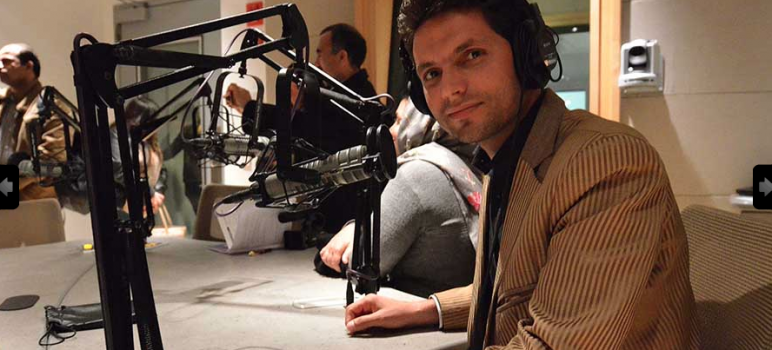War devastates many things, especially educational institutions. This has been the result of decades of violence in Afghanistan. In many cases, institutions of higher education are the backbone to national economic and cultural development. When systems of higher education are compromised, a degradation of all society results.
However, I am encouraged by collaborative international partnerships for higher education in Afghanistan. Diane Guerrazzi, an associate professor of journalism at San Jose State University, successfully secured a U.S. State Department grant after submitting a request for proposal for the Afghanistan Journalism Education Enhancement Program (AJEEP) with colleague Peter Young.
My wife Christine, a journalism colleague of Diane's at SJSU, was recently invited to teach two weeks of lessons in public relations as part of the $2.2 million State Department grant. At my own expense, I decided to tag along on the trip to Istanbul.
The recipients of the lessons were Afghan professors from Herat University in western Afghanistan and Balkh University in the north. The professors who congregated in Istanbul also attended six-week sessions on the SJSU main campus at different times in 2012 and 2013. The August 2014 Istanbul summer conference was the culminating educational event for the three-year grant.
The ancient proverb applies perfectly here: "Give a man a fish and you feed him for one day. Teach a man to fish and you feed him for a lifetime.”
The restoration of higher education in Afghanistan is key to rebuilding the war-ravaged nation. According to the State Department, the country’s level of academic quality is very low. What I found in the several times I had an opportunity to interact with professors from Afghanistan was a committed group of academics, many young and 20 percent of whom were women.
In addition to SJSU instructors, there were professors from the University of Arizona and Ball State working with their Afghan counterparts from Kabul and Shaikh Zayed Universities, respectively.
Many State Department grants have targeted the rebuilding and enhancement of higher education in Afghanistan, including one that has been funded since 2006 with Stanford University's Rule of Law Program and American University of Afghanistan in Kabul. But it’s also a multinational effort. The United Kingdom has been engaged in a similar mission to strengthen academic and research partnerships with institutions of higher education in Afghanistan.
Last Tuesday night, nearly 40 Afghan professors left the lobby of the Grand Halic Hotel in Istanbul, bound for home and their families. They had been part of AJEEP for more than three years, meeting together in two-week summer sessions in India in 2012 and Dubai in 2013. The Istanbul conference would be their last time together under the program.
As I watched the goodbyes, hugs and handshakes, I was struck by their unspoken commitment to do the hard work of restoring Afghanistan's educational institutions to new heights. But the effort is wrought with peril.
When the U.S. troops fully withdraw from Afghanistan in 2016, the Taliban could tip the balance of power, putting the lives of those who came to learn from U.S. universities—as well as their families—in jeopardy. My hope is a new generation of highly educated Afghan civilians will have the tools to learn—and teach—how to fish.


My wife Christine, a journalism colleague of Diane’s at SJSU, was recently invited to teach two weeks of lessons in public relations as part of the $2.2 million State Department grant. At my own expense, I decided to tag along on the trip to Istanbul.
I’m sure Afghanistan needs training in public relations, but wouldn’t agriculture and civil engineering be more useful. And why are these lessons in Istanbul? Isn’t that part of Turkey a couple of thousand miles away from Kabul?
I’m sure Joe feels really, really good about this program. But the sad reality is that this $2.2 million disappeared faster than a fart in a windstorm.
After the inevitable takeover by the Taliban, there will be no trace of this money ever having existed, except for the IOU’s pinned to the diapers of the next generation of American wage earners.
Turning to something that Joe COULD and SHOULD be doing something about, what are the local public education wise men doing about the obscene, grotesque, and barbarian practice of tattoo-ing and body piercing by the youths in their charge?
After all, if the public educators feel empowered to tell students not to say “God bless you” after someone sneezes, and to refer 14 year old girls to abortionists without parental consent, couldn’t they invest some of their vast store of high powered educationist professionalism in “educating” kids not to mangle and and deface their bodies.
Maybe there’s even a “self-esteem” issue underlying the youth proclivity to turn themselves into screaming graffiti messages to the world.
Or, is there nothing left in the SCCOE’s quarter billion dollar budget to deal with minor issues like this?